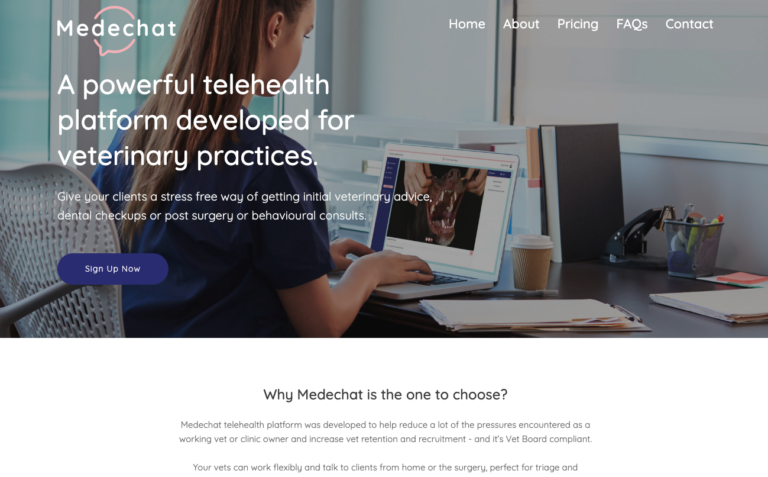Home Our Diverse Range of Tech Stack Build Business Potential with Python Development
Build Business Potential with Python Development
Python is a high-level, interpreted programming language that emphasises code readability and simplicity. It was created in the late 1980s by Guido van Rossum, and since then, it has become one of the most popular programming languages in the world. Python is known for its ease of use, which makes it an excellent language for beginners. It is also highly versatile and can be used for a wide range of applications, including web development, data analysis, artificial intelligence, scientific computing, and more. Python is an open-source language, which means that it is free to use and modify, and it has a large and active community that provides support and resources to developers
Revolutionise Your Business with Our Python Development Services
Embrace the power of Python and elevate your business to the next level. Our expert team can provide tailored Python solutions that will meet all your business needs. Contact us today to get started.
What is Python used for?
Python is a versatile and powerful programming language that is widely used for a variety of purposes. One of the most common uses for Python is in web development, where it is used to create dynamic and responsive web applications. Python’s ease of use and flexibility make it an excellent choice for developing complex web applications quickly and efficiently. It can also be used for creating desktop applications, scientific computing, data analysis, machine learning, artificial intelligence, and more.
Python is commonly used for scientific computing and data analysis due to its extensive libraries and built-in modules. Its extensive libraries provide a variety of tools for working with data, including numerical computing, data visualisation, and statistical analysis. Additionally, Python’s ease of use and flexibility make it an excellent choice for machine learning and artificial intelligence applications. This is due to its ability to process large amounts of data and its robust libraries for building and training machine learning models
Python Django Framework
Python security
Python is considered a secure programming language, with built-in security features and a strong community support. The language itself has several security features that make it less prone to vulnerabilities, including automatic memory management and data type enforcement. Additionally, Python has a secure standard library that is updated regularly to address any known security issues. It also has third-party libraries available for implementing security-related functionality, such as cryptography and authentication.
However, like any programming language, Python is not immune to security risks. One common vulnerability in Python is code injection, where attackers can execute malicious code by injecting it into the application. This can be mitigated through the use of parameterized queries and input validation. Another security concern is related to third-party packages, which can introduce vulnerabilities to an application. It’s important to keep track of the packages used in an application and to regularly update them to ensure any security patches are applied.
To ensure the security of a Python application, it’s important to follow secure coding practices and adhere to established security standards. This includes using strong authentication mechanisms, implementing encryption for sensitive data, and securing network communication. It’s also important to conduct regular security assessments and penetration testing to identify any potential vulnerabilities and ensure that the application remains secure over time. By following these best practices, developers can help ensure the security of their Python applications.
Is Python the right choice for a website or web app?
Python is a versatile programming language that offers a wide range of benefits to web developers. Its simplicity and ease of use make it an excellent choice for web development, allowing developers to build scalable and maintainable web applications quickly. Python is also highly adaptable, which means it can be used for various purposes, including web development, machine learning, data analysis, and more.
Furthermore, Python’s popularity is continually growing, making it an excellent choice for developers looking to build web applications with a robust and active community. With its extensive library of tools and frameworks, including Django, Flask, Pyramid, and more, Python offers a broad range of options for developers looking to build web applications.
Python is a highly recommended programming language for web application development due to its simplicity, versatility, and active community support. By using Python, developers can create powerful and efficient web applications, and with its wide range of frameworks and tools, it offers solutions for any web development project.
Partner With Butterfly for Python Development
Take advantage of the chance to experience the exceptional services provided by Butterfly, a top web design agency in Melbourne. We combine creativity and technical expertise to craft visually stunning and highly functional websites that drive actual business results. Whether you’re a small business or a growing enterprise, our affordable services will help you stand out. Get in touch with us today, and let’s create a website that elevates your brand.
Frequently Asked Questions on Wagtail
What are the advantages of using Python for web development?
Python offers several advantages for web development, such as its simplicity, versatility, and vast range of libraries and frameworks. Python code is easy to read and write, making it ideal for rapid application development. The language can also be used for a wide range of tasks beyond web development, including data analysis, machine learning, and scientific computing.
What are some popular Python web frameworks?
There are several popular Python web frameworks that developers use, including Django, Flask, Pyramid, and Bottle. Django is the most widely used Python web framework, offering a complete set of tools for building web applications, including an ORM, templates, and an admin interface. Flask is another popular choice, offering a lightweight and flexible framework that is easy to learn and customise.
What security measures should be taken when developing web applications in Python?
Python web applications can be vulnerable to a range of security threats, such as SQL injection, cross-site scripting, and CSRF attacks. To mitigate these risks, developers should take steps such as input validation, secure password storage, and using SSL/TLS for data transfer. It is also important to stay up to date with security patches for both the Python language and any third-party libraries or frameworks used in the application.
What are some popular Python CMS?
Some popular Python CMS are Django CMS, Wagtail, Plone, and Mezzanine. Django CMS and Wagtail are widely used for building enterprise-level websites, while Plone and Mezzanine are more suitable for smaller sites or internal projects.



